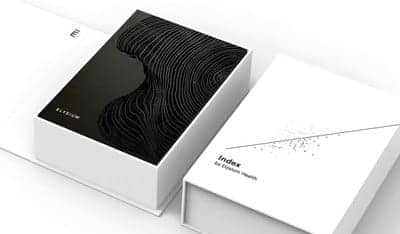Elysium Health, New York City, has launched Index, an at-home test intended to enable individuals to measure their cumulative rate of aging and determine their biological age.
Aging researcher Morgan Levine, PhD, associate professor of pathology at the Yale School of Medicine, has joined Elysium Health as head of bioinformatics to lead the development of Index using the latest generation of an epigenetic biomarker called DNAm PhenoAge.
Unlike earlier epigenetic clocks, which were developed to support population-level research, Index was developed by Levine and the Elysium Health team to further improve the testing methodology and make its application accurate and informative at the individual level.
“Scientists in the field of aging research have long explored two fundamental questions: can aging itself be measured; and can we slow, stop, or reverse the processes associated with aging?” says Eric Marcotulli, CEO of Elysium Health. “With aging as the single greatest risk factor for all major chronic conditions—and a force that affects everyone even before birth—these questions are focused on supporting our collective ability to not only improve lifespan but, more importantly, ‘healthspan.’
“With the launch of Index, we hope to continue the scientific exploration of these two questions by extending the conversation to the consumer market and allowing everyone to benefit from the ability to determine their cumulative rate of aging and, with it, to see if lifestyle and other changes can impact how they age in the future,” adds Marcotulli.
Levine helped to identify specific DNA methylation sites along the epigenome that are highly correlated with nine known clinical chemistry biomarkers of biological age and chronological age. Since the development of the first epigenetic clock in 2011, the methodology has been further refined and validated in multiple large-scale datasets across diverse populations and tissues.
A challenge to developing Index—and a key differentiator—was ensuring its accuracy and repeatability at the individual level. While the published applications of the biological age measure typically look at hundreds of sites on the genome, Index examines global patterns across more than 100,000 sites, which solves for issues related to technical replicates—an important consideration for making the technology available to consumers and researchers.
“Historically, chronological age has served as the best estimation of health and aging. However, not all individuals age at the same rate—based on genetics, demographics, and lifestyle factors—and therefore, people of the same chronological age don’t necessarily share the same current health status or future outlook,” says Levine. “Index provides a better picture of where an individual is in his or her aging process, which is why I’m excited to make this aging measure and the technology that supports it directly available to consumers. It shows incredible promise when it comes to monitoring overall health and wellness, and there is potential for even more diverse applications in the future.
“In clinical research, tools like this also enable faster evaluation of intervention efficacy, avoiding the need for decades of follow-up,” Levine adds. “It may also inform basic and population research, by shedding light on factors that alter the pace of aging and facilitating the identification of therapeutic targets to slow the process. For people in their everyday lives, while there are no guarantees, understanding one’s cumulative rate of aging and the factors that are reflected on the epigenome may help them prioritize behaviors and lifestyle choices to proactively optimize their health and wellness today and in the future.”
While the technology required for epigenome and genome mapping has historically made comprehensive testing cost-prohibitive, Elysium Health enlisted the help of Illumina, San Diego, to develop the custom Elysium chip to make the initial release of Index as accessible as possible. Elysium Health is committed to continuing to innovate the testing technology to make its measure of biological age available to everyone.
For more information, visit Elysium Health.


